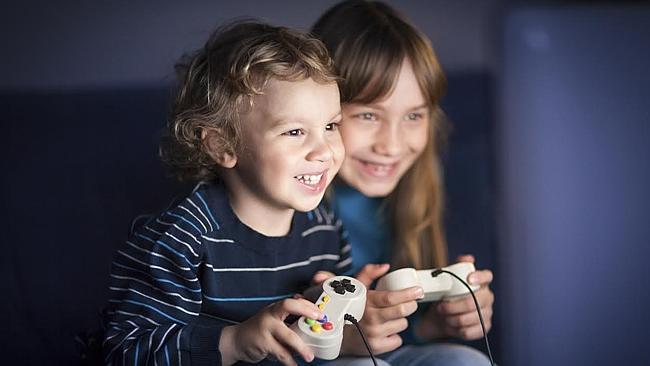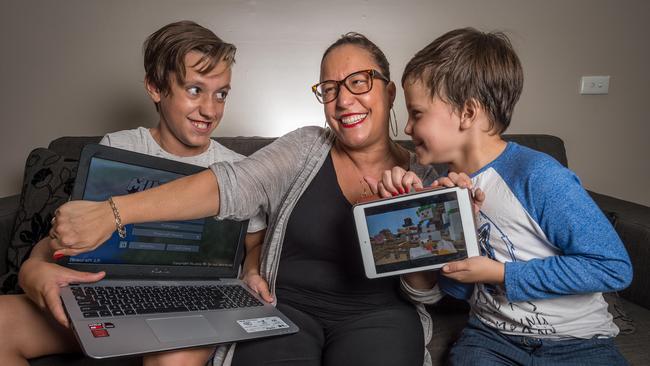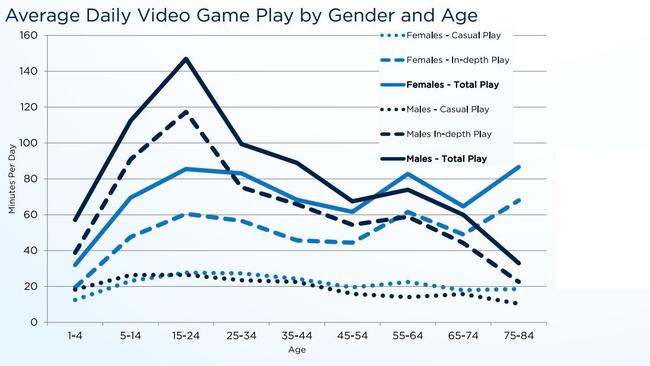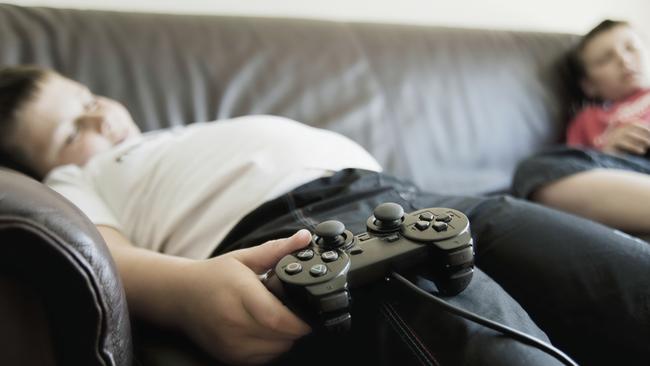Screen addiction: Primary schoolchildren playing video games up to 18 hours a day
PRIMARY school aged children are playing video games for up to 18 hours a day as a screen addiction epidemic sweeps through Australian homes.

VIC News
Don't miss out on the headlines from VIC News. Followed categories will be added to My News.
A SCREEN addiction epidemic is sweeping through Australian homes, with some primary school aged children playing video games for up to 18 hours a day.
The fixation on games such as Minecraft has led some children to skip school, lose friendships and take up to 30 minutes to turn off their devices.
Desperate parents have turned to counsellors to help beat the scourge, as child psychiatrists warn that games on video consoles, iPads and iPhones provide a chemical brain hit that makes them so addictive.
SEE TIPS FOR PARENTS TO AVOID SCREEN ADDICTION BELOW
Melbourne youth worker and counsellor Steven Dupon said children who play computer games have an unhealthy compulsive relationship with them.
“There are so many parents concerned and struggling with the gaming behaviours of their kids,” Mr Dupon said.
“Some of these kids play games for 18 hours a day, drop out of school, have horrendous relationships with their parents, friends and at school.”
Melbourne mother Lisa, 48, said her son David, 8* developed a screen addiction when he was recovering from tonsils surgery.
But as his screen use increased, his behaviour became worse. “He would yell, hit out and he was so horribly distressed and thrashing himself about,” she said.
“He knows he’s been excessive and feels terrible shame and embarrassment. He just says `I can’t stop. This is torture. I don’t deserve to live’.”
But after just one week in therapy she finally has a glimmer of hope.
“I’ve been so happy to see a slight interest in his bike again,” she said.
“I’m hanging onto that. He used to have a lot of friends but he’s not interested in anything other than the game.”

Child psychiatrist Dr Philip Tam said video screen addiction was a “nationwide problem.”
“These computer games give kids great rewards and a sense of satisfaction to the point that we’re seeing an epidemic among young people,” Dr Tam said.
“I’m certainly aware there is a big concern among parents and teachers about the over use of various forms of technology.”
Dr Tam said the games are designed on a reward system which gives children a rush of the feel- good hormone dopamine. Unlike other activities such as reading a book or playing the violin, computer games provide instant rewards.
“They offer instant rewards like nothing else that has been invented by humanity. It’s a hyperactive, enormously rewarding experience and children lack the self-reflective capacity to monitor themselves. I’m not against having fun or advocating no games but it’s about getting a healthy balance.”
Bond University’s report,The Digital Australia 2016, found the average time teenage boys, aged 15-24, spent playing video games is 145 minutes or two-and-a-half hours a day.

But child and adolescent psychologist Collett Smart said the amount of time spent on a digital device is less important than what the child is doing on the device.
“I always tell parents that the amount of time spent on screens alone is not a good enough indication of an addiction,” Ms Smart said.
“Essentially, what you have to work out is what your child is looking at online. They could be spending three hours a day on a reading group, not necessarily gaming.”

More details: videogames.org.au/parenting and The Parents’ Guide to Gaming by Steven Dupon.
* The names of Lisa Jackson and her son David have been changed to protect their identities.


